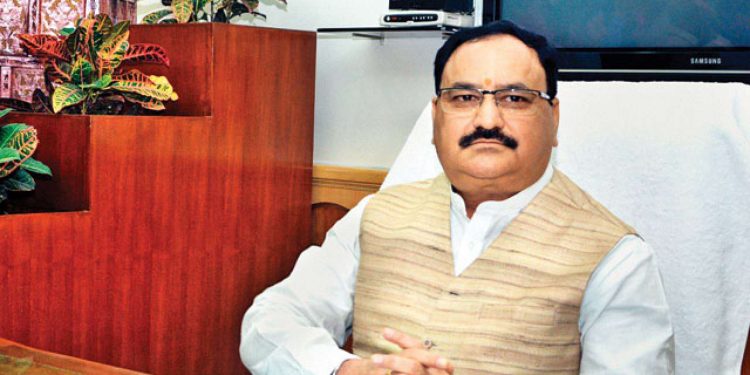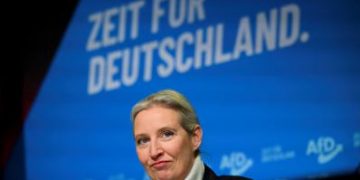Bhubaneswar: India not only took the bold and timely step of imposing a lockdown to save the lives of 1.3 billion people from COVID-19 but also took care of the economy to turn the tragedy into an opportunity, BJP president JP Nadda said Saturday.
Addressing a meeting of the party’s Odisha executive committee, Nadda said that while powerful nations were helpless in combating the pandemic, Prime Minister Narendra Modi was clear in his mind as he took the decisive action of imposing the lockdown in order to save the lives of the people.
“PM Modi made it clear that the lives of 1.3 billion people must be saved. He said ‘Jaan hai to Jahan Hai’ as public health was at the top of his mind,” the BJP chief said.
The lockdown was imposed well in time and also implemented effectively across the country as a weapon against
the pandemic, he said.
Besides taking care of the health-related matters, the Modi government also addressed the economic issues through several programmes such as the ‘Garib Kalyan Yojana’ and ‘Atmanirbhar Bharat’, Nadda said.
Even the UN secretary-general acknowledged India’s steps in this regard and so has the director-general of the
World Health Organisation, he added.
The tragedy and challenges posed by the COVID-19 pandemic were effectively turned into an opportunity by the BJP-led government at the Centre, which announced a Rs 20 lakh crore package to revive economic activities amid the crisis, he said.
Nadda’s comments came amid the criticism of the government by the opposition over the sharp decline in the GDP.
The country’s economy suffered its worst slump on record in April-June, with the gross domestic product (GDP) contracting by 23.9 per cent as the coronavirus-related lockdowns weighed on the already-declining consumer demand and investment.
Noting that all the political parties except the BJP became “inactive” after the lockdown was imposed, Nadda said his party took to the virtual mode and continued to serve the people.
Asserting that the healthcare infrastructure of the country was given a major boost by the government, he said that when the lockdown was imposed India did not have a single COVID hospital, and over 1,500 such facilities with 2.5 lakh beds have been set up in the last few months.
Similarly, daily COVID-19 testing has also increased to over 10.10 lakh, he said.
Besides, the country now manufactures over 4.5 lakh PPEs every day as the prime minister encouraged Indian
entrepreneurs, Nadda said.
This apart, the country also has over 3 lakh ventilators, he said.
The BJP chief said that due to the concrete steps taken by the government the COVID-19 recovery rate in India has gone up to 74.30 per cent.
All these show that India has fought the pandemic from the front under the leadership of Modi and has achieved success in the battle, he said.
Nadda said that 80 crore poor people have benefited from the ‘Garib Kalyan Yojana’, under which rice, wheat, dal and other commodities are being provided.
The programme was launched as PM Modi was worried about the poor. He wanted to ensure that nobody remains hungry due to the crisis triggered by the pandemic, he said.
Moreover, eight crore people were provided LPG cylinders free of cost for three months in order to mitigate their hardship, Nadda said, adding that financial assistance of Rs 500 per month was extended to 20 crore poor women, while differently-abled persons and destitute are getting Rs 1,000.
Of the Rs 3 lakh crore earmarked for the revival of the MSME sector by providing easy loans, already Rs 1.10 lakh crore have been sanctioned and disbursed, he said.
The BJP leader said that Rs 1 lakh crore is being spent on agriculture.
Nadda said the National Education Policy is set to change the face of the country, and BJP workers should make the people aware of these initiatives, he said.
The NEP will enable students to study in different regional languages and ensure equal opportunity and provide flexibility in education, he said.
The prime minister has also decided to reach optical fibre connectivity to 6 lakh villages in the country within 1,000 days, Nadda added.
PTI






































